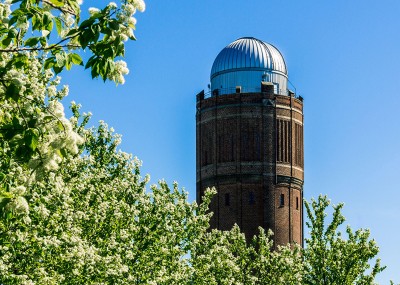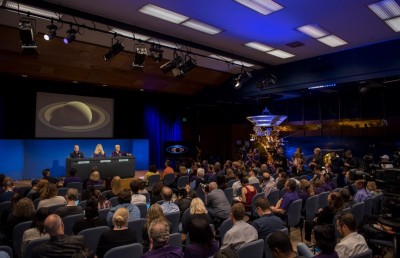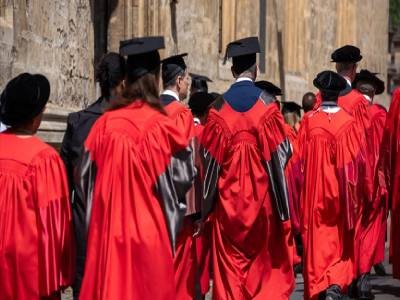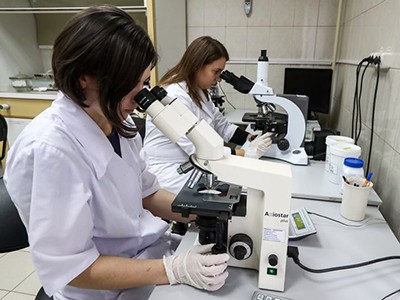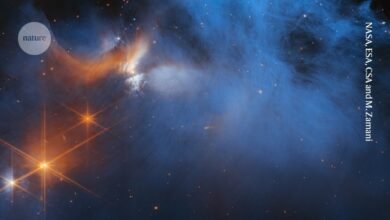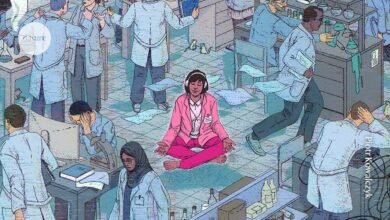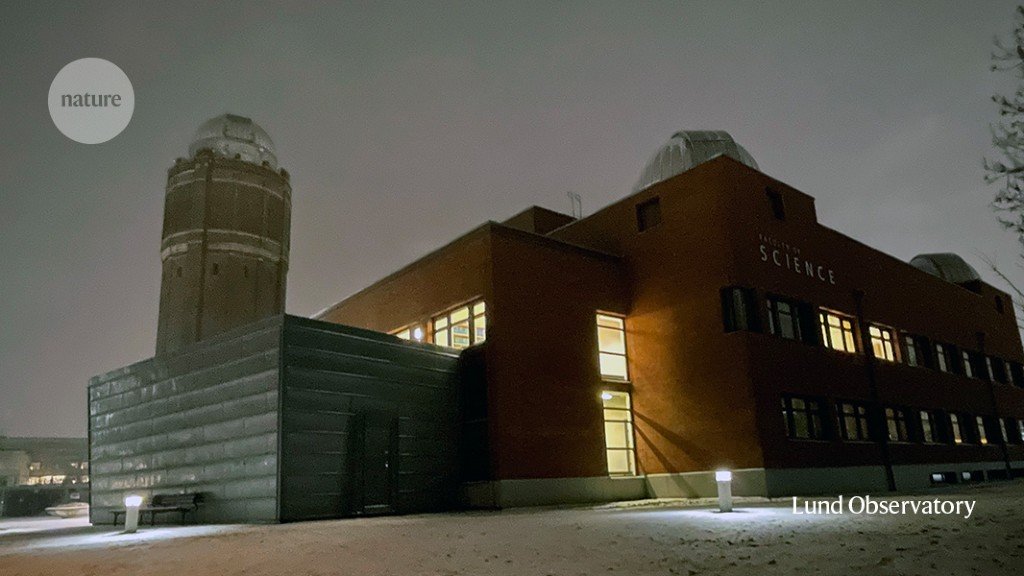
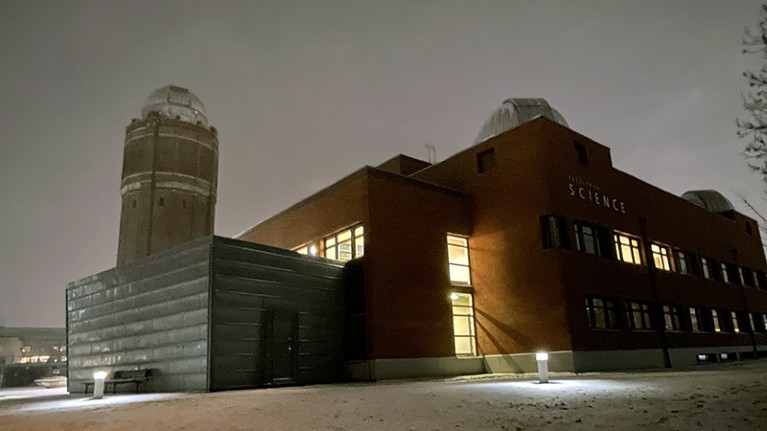
The former astronomy building at Lund University in Sweden.Credit: Lund Observatory
At Lund University in Sweden this week, astronomers moved out of a building that was custom-built to hold telescopes and other artefacts from their 350 years of history, and relocated to a physics building down the road. That’s because the astronomy department no longer exists, having been dissolved in the wake of a bullying scandal.
For more than three years, Lund University administrators have struggled to respond to numerous complaints that were filed against two senior astronomy professors. The university ultimately decided to assign the two professors to other departments and to disband the department of astronomy and theoretical physics, subsuming it as a division of the physics department.
Astronomers victimized colleagues — and put historic Swedish department in turmoil
Many astronomers at Lund have told Nature that because the university took so long to find a solution, it was nearly impossible to do science at times during the past few years. The turmoil contributed to several prominent astronomers leaving the university. Other leading scientists remain, but the forced reorganization has disrupted their careers and research. “This is an insane situation,” says an astronomer who asked to remain anonymous because they are still at the university.
Sven Lidin, the dean of science at Lund University who oversaw the changes, says that he saw no other way forward. “My attempts to resolve the issues within the existing organization were unsuccessful, and, as a last resort, I decided that a reorganization was the only option left,” he wrote in an e-mail to Nature.
The reorganization has also upended the theoretical physics group at Lund, which had been part of the department of astronomy and theoretical physics and now has also seen its members dispersed among other departments. “It was not only the astronomers that were affected by this — the whole of theoretical physics has now been broken apart,” says Leif Lönnblad, a theoretical physicist at the university.
Other institutions have taken the extreme step of reorganizing in the wake of a bullying scandal. In 2017, for instance, the Swiss Federal Institute of Technology Zurich merged an astronomy institute with a physics institute — but excluded an astronomy professor accused of bullying.
At Lund, the situation is striking for how long it has dragged on. Complaints against the two professors, Sofia Feltzing and Melvyn Davies, date back to at least 2008 at Lund Observatory — the name used to refer to astronomy research at Lund University. A May 2020 employee survey revealed the long-running tensions: it found that 70% of respondents at the observatory had observed harassment and bullying in their workplace, although it didn’t name the people allegedly responsible. A June 2021 article in Nature described the findings of two university-commissioned investigations that Feltzing and Davies had victimized, discriminated against or bullied colleagues.
Neither Feltzing nor Davies responded to Nature’s requests for comment.
A lengthy resolution
Soon after the 2020 employee survey was conducted, various groups of senior academics and graduate students began appealing to the university to take action.
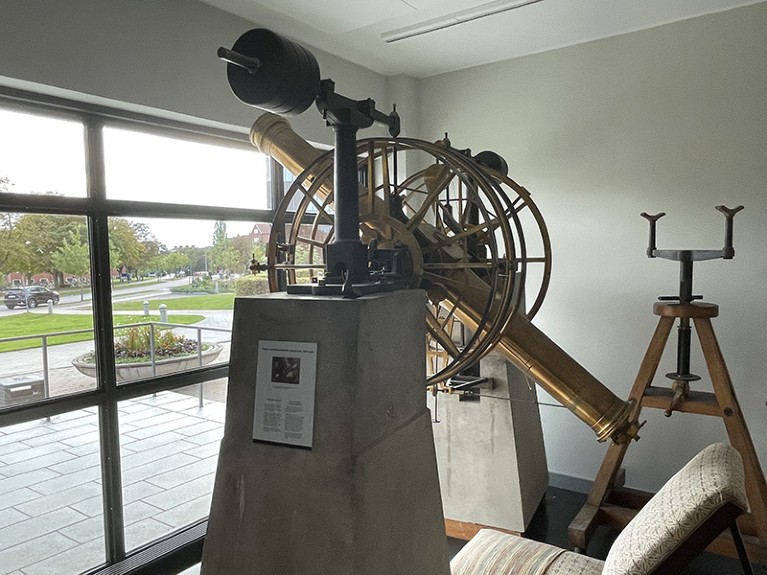
A ‘meridian’ telescope that was used by Sweden’s first female astronomer is on display at Lund’s former astronomy building. As researchers move out of the building, it’s unclear what will happen to it.Credit: Lund Observatory
By 2021, Lidin had brought in an administrator from outside the astronomy department to take charge of the observatory; another one was brought in for 2022. Both spent months interviewing observatory employees and speaking to the labour unions representing Feltzing, Davies and others, who were involved because of Swedish workplace rules. But neither could apparently reach a resolution.
In August 2022 — more than two years after the problem became well known — Lidin told the department that “within the current organization, the deadlocks which exist are far too vast to be overcome in a credible and sustainable way”. Three months later, the university’s faculty board voted to dissolve the astronomy department, sending most of the astronomers to the physics department by 1 January 2023. Feltzing joined the university’s geology department, and Davies had earlier moved to the mathematics department.
Feltzing maintained an office in the astronomy building for more than a year after the scandal went public, with some restrictions on how often she could enter the building and how much notice she had to provide. “We were walking in the same corridors for the longest time,” says the astronomer who asked to remain anonymous. “It was just very strange.”
Bullying and harassment are rife in astronomy, poll suggests
The longer a bullying situation drags on, “the more traumatic the situation becomes”, says Christina Björklund, a researcher who studies bullying at the Karolinska Institute in Stockholm. Recent research, including the first study of the prevalence of harassment in bullying in Swedish academia, has highlighted how universities need to develop effective responses, she says.
Many current and former members of Lund Observatory say that if the astronomy department had to be dissolved, the physics department was the most suitable place for most of them to relocate to. But the drawn-out nature of the reorganization took a huge toll. “It’s done a lot of damage,” says Paul McMillan, an astrophysicist who recently left Lund University for the University of Leicester, UK. “It’s going to take time to rebuild.”
“It is certainly true that valuable time was lost in making the necessary changes and that this affected teaching and science,” Lidin says.
Vacated space
Astronomy is a historically important field of research in Lund, a city whose first observatory was built in 1672. Today, the astronomy building on the university campus has telescopes on its roof and houses displays including a famous panorama of the Milky Way — compiled at Lund in the 1950s — and a ‘meridian’ telescope that was used by Sweden’s first female astronomer to measure stars crossing a north–south line in the sky.
Lund Observatory astronomers are taking some of its historical artefacts in the move to the physics building, but probably not all of them. Given this upheaval, the forced relocation represents “the destruction of a culture”, says Colin Carlile, a guest researcher at the observatory. The university has not decided what to do with the space vacated by the astronomers.
The fight to end bullying in academia: UK researchers launch nationwide campaign
Among the careers affected is that of Rebecca Forsberg, who recently received her PhD at Lund Observatory. Senior astronomers were distracted by the workplace issues and had less time and attention to work with students, she says. And the university didn’t provide sufficient resources for students to navigate the situation: “They’ve really gone way and above to make everything hard for us,” she says. “I don’t feel like they have protected us in any way.” Forsberg plans to leave Lund Observatory and might leave academia.
Lidin says he cannot comment on individual employees but that “it is possible” that the turmoil at Lund Observatory “has affected career choices for some of our staff”. He says he and other university officials “have done our utmost” to provide support for staff and students alike, but that “given the situation, I am not entirely surprised that there are those who felt we could have done more”.
One high-profile departure is Anders Johansen, an expert in planetary formation who headed Lund’s astronomy department from 2016 to 2020 and so handled many of the complaints about Feltzing and Davies. Johansen says that he did not have support from those higher up in the university to deal promptly and effectively with complaints. “At some point it became unbearable,” he says. “I did not want a life where I had to deal with such problems all the time.” Johansen moved his research group to the University of Copenhagen, but he visits Lund’s astronomers once a week and will become a guest professor there.
Astrophysicist Florent Renaud, who filed a complaint against Feltzing and Davies in 2020, had been looking to leave Lund when he was offered a leading position at the University of Strasbourg in France, his home country. “I picked the earliest date I could” as a start date, he says. Now that he’s in Strasbourg, “it’s so bright, and it feels weird after all these years of darkness”.
Stress, anxiety, harassment: huge survey reveals pressures of scientists’ working lives
Renaud says that he is clear-eyed about the prevalence of harassment and bullying in academia. “When I said I’m going to leave Lund, people said: ‘Good for you, but be careful because you find harassers everywhere.’ I said, ‘I know, but what is different is the way they are managed or handled.’”
In the coming weeks, the astronomers who remain at Lund will unpack their boxes in the physics building. Many, exhausted by the past few years, are trying to look forward. “My energy is probably best and most productively spent doing really good research and proving that astronomy in Lund is very important and relevant and has a future,” says another astronomer who requested anonymity because they are still at the university.
“We have a stronger-knit community because of this,” adds the first astronomer who requested anonymity. “But I would not hug the dean and say thank you.”
Source link

